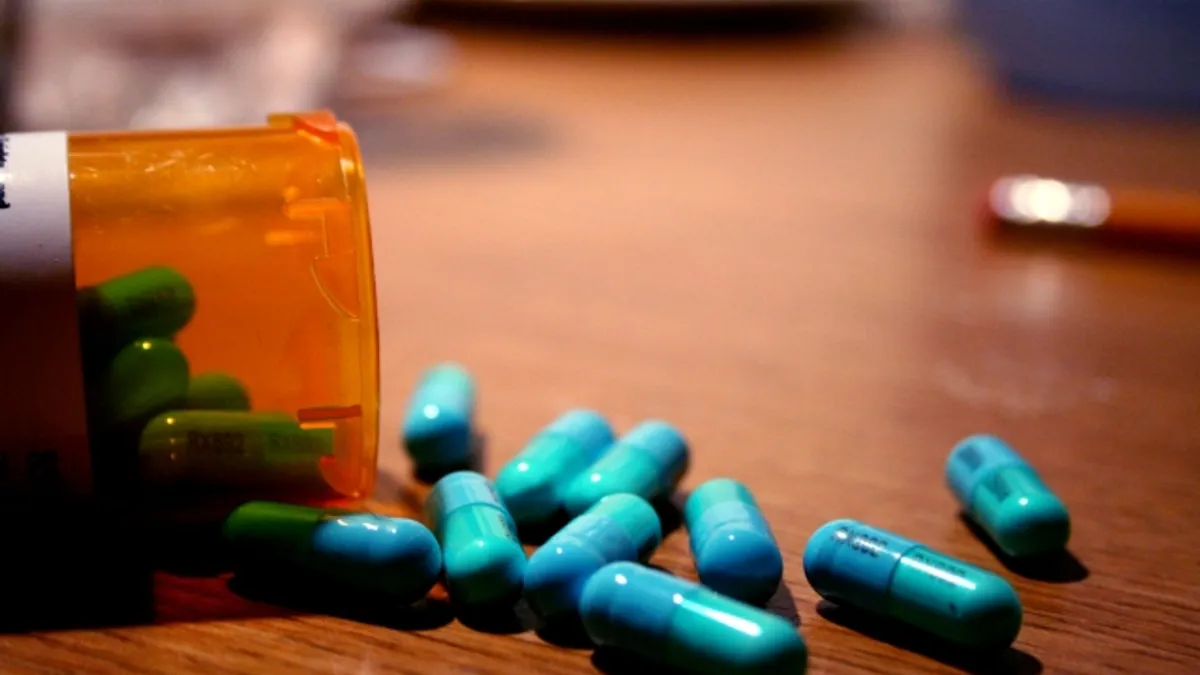Editor's note: This is the latest in a series of monthly columns about emerging trends in regulatory compliance and managing hazardous or special waste.
In 2015, the U.S. EPA estimated that thousands of tons of pharmaceutical drugs were being flushed down sinks and toilets each year by healthcare facilities. Treatment systems processing wastewaters are not designed to remove the discharged pharmaceuticals, which can end up in receiving waterways — exposing fish and other aquatic wildlife to the chemicals in these medications.
After several years in draft, the long-awaited final rule for the management of hazardous waste (HW) pharmaceuticals was signed in December by Acting EPA Administrator Andrew Wheeler. The new regulations are expected to streamline the management of these wastes and offer new opportunities for service providers.
The new rule will create regulations in RCRA part 266 subpart P for the management of HW pharmaceuticals in place of using the generator regulations in part 262. The new subpart P regulations do not apply to other hazardous wastes generated by healthcare facilities.
After significant input from stakeholders during the comment period, EPA imposed a broad prohibition on sewering of all HW pharmaceuticals. Several state and local jurisdictions have already implemented bans on the sewering of wastes by healthcare operations.
Environmental effects of improper disposal
When medications are unused, the standard healthcare practice has been to flush unused pharmaceuticals down the toilet or drain. A number of studies have found this widespread practice used in place of proper HW management.
The Clean Water Act (CWA) was established to reduce pollutant discharges, but it was never intended to treat pharmaceuticals in wastewater. Publicly-owned wastewater treatment operations are designed to remove conventional pollutants, such as suspended solids and organic compounds. Despite their capabilities, the current technologies employed do not include treatment for active pharmaceutical ingredients (APIs).
Recent studies have identified detectable levels of antibiotics and antidepressant compounds in rivers, lakes and drinking water supplies — and negative effects have been identified in fish and other aquatic populations. Researchers are also looking at the way different drugs can interact to produce adverse effects from combined concentrations.
Pharma waste 101
The new rule applies to healthcare facilities that generate, accumulate and handle HW pharmaceuticals as well as to the reverse distributors engaged in management of these products. The list of affected entities includes hospitals, pharmacies and drug stores, physician and dentist offices, and veterinary services. The rule does not apply to pharmaceutical manufacturers, who will remain subject to the generator regulations.
EPA has defined the term “reverse distribution” to describe the system for managing unsold retail pharmaceuticals. The flow of these items is a common practice for retail stores and relies on arrangements with drug manufacturers to determine the ultimate disposal of these goods. Reverse distributors must manage the pharmaceuticals in accordance with the new subpart P regulations. They are required to follow a strict set of management requirements until the drugs are reused or destroyed at a permitted disposal facility.
Best practices for disposal
Prior regulations of RCRA HW pharmaceuticals that were also U.S. Drug Enforcement Administration (DEA) controlled substances (heroin, methamphetamine, LSD) led to confusion with the multi-agency rules. The new final rule eliminates the dual regulatory oversight, placing these wastes squarely under the DEA, provided they are not sewered.
Understanding which pharmaceuticals are hazardous or nonhazardous is a fundamental responsibility of every healthcare facility. As generators, these operations will need to will need to comply with packaging, labeling, training and recordkeeping standards, as well as a host of other new requirements.
Healthcare facilities affected by these regulations may elect to work with their waste service provider to ensure the proper controls and transportation of HW pharmaceuticals. On-site management by knowledgeable personnel can support healthcare facilities with requirements for waste determination, labeling, storage and shipping.
In light of the risks of sewering and the potential for APIs to be released into the environment, EPA has recommended incineration as a best management practice for healthcare facilities discarding HW pharmaceuticals. As a result, these regulations will create new waste volumes destined for disposal at the limited number of U.S. facilities permitted to incinerate hazardous waste.
EPA also evaluated disposal in municipal solid waste landfills and cited limited studies showing APIs in landfill leachate. Although the leachate is typically sent for wastewater treatment, the treatment technologies are not designed to remove APIs from the wastewater.
The new rule also maintains the household HW exemption for consumer-generated pharmaceutical wastes collected by take-back programs and events. For this reason, home-generated wastes should be properly collected through community programs and managed as hazardous waste.
In order to address another issue, EPA amended the rule to exclude over-the-counter nicotine replacement therapies, including gums, patches and lozenges approved by the U.S. Food and Drug Administration. These drugs, previously regulated under an acute hazardous waste listing due to potential toxicity of nicotine, are now exempt from RCRA regulations.
With the uncontrolled release of pharmaceuticals into the environment gaining more attention around the world, the actions described in the new final EPA rule are an important step in fostering the responsible use of these chemicals.
The new rule will be published in the Federal Register at a future date. EPA will discuss the contents of the final rule in two webinars to be held in January 2019, pending the current government shutdown.
Rich Thompson is the managing partner of TEC, LLC and provides expert consulting advice on complex environmental compliance issues. He was formerly the director of environmental compliance at both Republic Services and Waste Management.




















